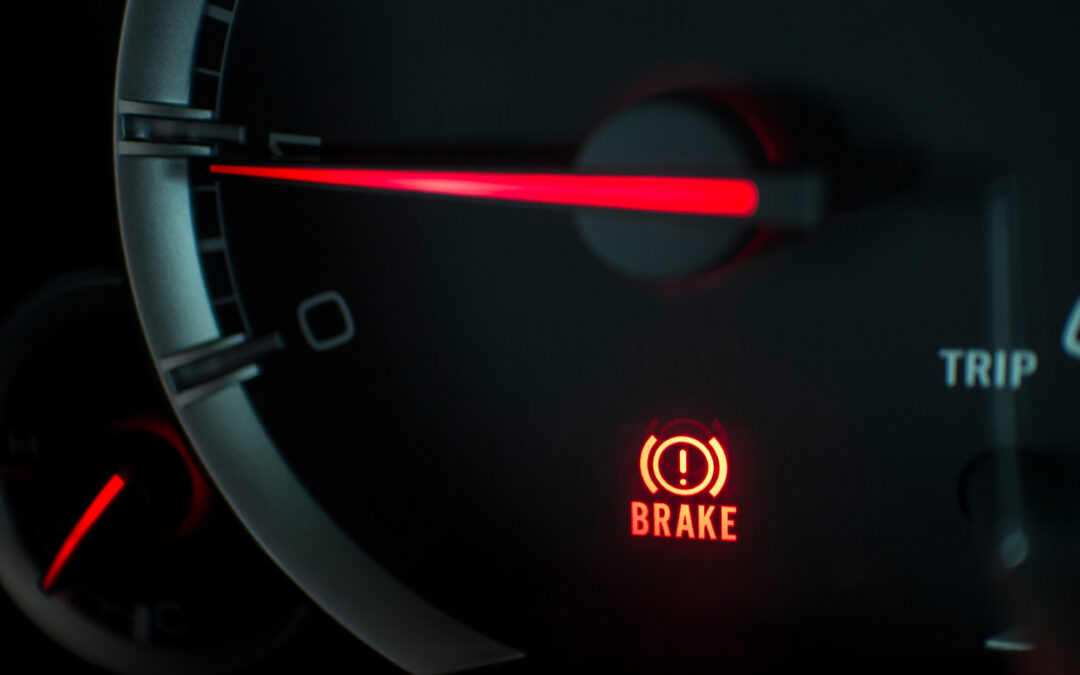
by Michael Lazo | Apr 22, 2023 | Auto Repair Northern Colorado, Brakes
If you are like most drivers, when a dashboard warning light suddenly illuminates, it may throw you into a panic. Warning lights are designed to alert us to a potential or existing problem within one of the many vehicle systems. Being informed on what they may mean, and how to address them is a way to alleviate some of your panic. In this month’s blog post, we examine the brake system warning lights, what they may indicate, and how to address them if they illuminate on your dashboard. (more…)
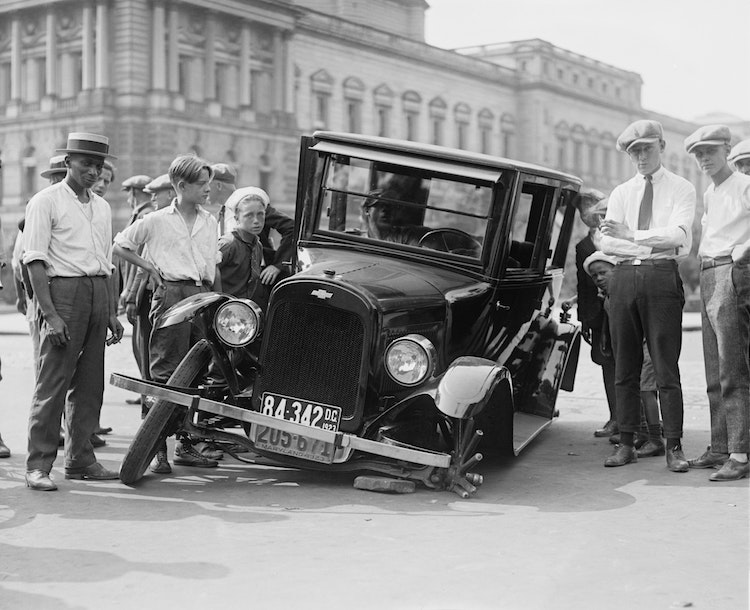
by Anne Lazo | Aug 27, 2020 | Auto Repair Northern Colorado, Brakes, Campus Repair, Preventive Maintenance
Most of us get in our vehicles to go from point A to point B, and never really think about all of the things that keep us safe during that journey. Vehicles are equipped with a wide range of safety components and features that are designed to protect us and our vehicle occupants. Some of the more obvious safety components of our vehicles are things like seat belts or door locks – But what about those vehicle safety features we know are there but are usually not top of mind? In this article, we review key safety components in our vehicles, what can potentially go wrong with them, and ways to maintain ongoing and effective functioning of those safety components.
(more…)
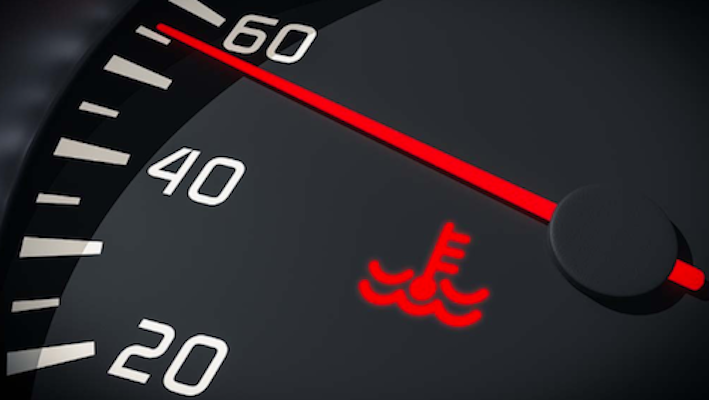
by Anne Lazo | Jun 27, 2020 | Auto Repair Northern Colorado, Brakes, Campus Repair, Preventive Maintenance
If you are like most people, you probably never sat down and read your vehicle’s owner manual from cover to cover. However, it is likely that you may have consulted with your manual on occasion when an obscure warning indicator suddenly showed up on your dashboard.
(more…)
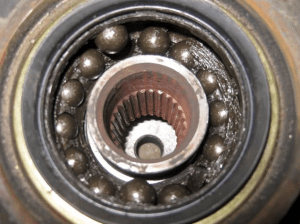
by admin | Jun 7, 2019 | Brakes
Have you been hearing a grinding sound coming from the area of your wheels? Does the sound get louder as you driver faster? Most likely, it’s a bad wheel bearing. If that’s the case, you will want to have it replaced. While a wheel bearing doesn’t typically fail immediately, you don’t want to put off replacing one for too long. Otherwise, you are at risk of having an accident – one that could be serious. This blog post will provide you with more information on how wheel bearings work and how to tell if they are worn out.
A wheel bearing assembly is made up of a set of steel ball bearings that are packed with grease and enclosed in a metal ring that’s called a race. Located at the end of each axle shaft inside a part known as a hub, wheel bearings help reduce friction as your wheels spin. Over time, the wheel bearings begin to accumulate contaminants from the outside and will wear out. When they do, you will start to notice some of the following symptoms:
- You will hear a grinding or grating noise that seems to be coming from one of the wheels. This is definitely the most common symptom that a wheel bearing is bad. It’s not always easy to tell which wheel is making the noise. One thing to remember is that the grinding noise will get louder as you drive faster. The noise is occurring because metal is now grinding on metal.
- The tires may show signs of uneven wear. Yes, there are a lot of things that can cause your tires to wear unevenly. A bad wheel bearing is one of them. Why does this happen? A faulty wheel bearing allows for more “play” in the wheel which causes it to vibrate more. With a bad wheel bearing the uneven wear will show more on one tire.
- You feel more vibration in the steering wheel or your vehicle will pull to one side. Typically, the steering wheel vibration from a bad bearing will be noticed at slower speeds and will get worse as you accelerate.
- The steering may feel “loose.” This is one sign you may not notice on your own. You can check this out by putting your car up on a jack and after grabbing the wheel on opposite sides, attempting to rock it back and forth. If the wheel bearing is okay, the wheel won’t wobble. If the wheel bearing is worn out, you will notice that the tire and wheel assembly will move back and forth.
Can you drive with a bad wheel bearing?
As mentioned, a wheel bearing that is just starting to show signs of a problem isn’t likely to fail right away. That doesn’t mean you should put off having it replaced. Because of the vibrations and extra wheel play, a bad wheel bearing will begin to put pressure on other steering and suspension components. It may end up causing damage to the hub, CV joint, and axle to name a few. Even worse, if left unfixed, a worn wheel bearing could fail completely and cause the wheel to seize while you are driving. That would most likely result in a serious accident.
Think you have a problem with a wheel bearing? Don’t leave it to chance. Bring your vehicle into our auto repair shop located in Ft. Collins, Colorado. Our technicians will be able to inspect your vehicle and let you know if you need to replace a wheel bearing. Give us a call or stop by our shop today.
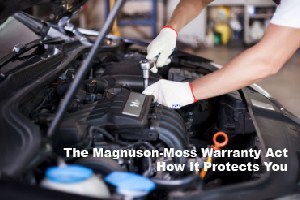
by admin | May 7, 2019 | Brakes
Did you recently purchase a new vehicle? Are you leasing one? It’s not uncommon for car dealerships to tell their customers they must have their vehicle serviced and repaired there or the manufacturer’s warranty will become void. This is simply not true. In actuality, there is something called the Magnuson-Moss Warranty Act, that protects you. The key is to know your rights under this act.
According to the Magnuson-Moss Warranty Act, it is illegal for manufacturers or dealers to claim your warranty becomes void when someone other than the dealer does the work. What does that mean? Hopefully we will be able to answer that by providing the answers to some frequently-asked questions about vehicle warranties.
Q. Must I take my vehicle to the dealership where I purchased it for routine maintenance like oil and filter changes?
A. No. The act says you can take your vehicle anywhere you would like, whether it is for oil changes, cooling system service, and any other routine maintenance and repairs. If you’re the do-it-yourself type, you may also do the work yourself. Selecting any of these choices for auto maintenance or repair will not void the manufacturer’s warranty.
Q. What types of auto repair or maintenance services are covered under vehicle warranties?
A. As you can imagine, every car manufacturer has its own warranty coverage. The ones that are most common are bumper-to-bumper and powertrain warranties. As the name implies, a bumper-to-bumper warranty typically covers most items from the front to the back bumper of your vehicle. These warranties last for a specific amount of time, like 3 years or 36,000 miles. To apply that to real-life, if you have an engine failure or the oil begins leaking because of material or workmanship defects, the dealer will make the repairs at no cost to you. Normal wear and tear items like tires, oil/filter changes, brakes, cooling system service are not covered under the vehicle warranty.
Q. What types of things would void the manufacturer’s warranty?
A. While you can bring your vehicle to be serviced anywhere, you must follow the minimum maintenance schedule outlined in the owner’s manual. You are also required to use the proper brand(s) of fluids and parts for your vehicle. If you fail to do any of these things, you void the warranty. That means if the engine has a problem needing repair, you will have to pay for it.
The easiest way to make sure the manufacturer’s warranty will cover your vehicle is to have it maintained and repaired at one place, like Campus Repair in Ft. Collins, Colorado. We keep detailed records of all the services we perform on your vehicle, and if there are parts that need to be replaced, we will let you know. We will also tell you when a needed repair is covered under the manufacturer’s warranty so you can have it done at your dealer at no cost to you. Call or stop by the shop for your next vehicle service.

by admin | Apr 18, 2019 | Brakes
Spring is always a welcome sight, especially after a harsh winter. Our landscape certainly lends itself to scenic drives. Of course, there’s always spring and summer baseball season for the kids and all sorts of weekend activities that require a lot of back and forth driving. There’s certainly no time in anyone’s schedule for unexpected car repairs. That’s why we put together these 7 tips on how to get your vehicle ready for summer.
The simplest way to avoid engine problems, is to make sure you take care of regular vehicle maintenance. Following these 7 tips will make sure your vehicle is running its best for summer driving:
- Oil and Filter Change – Changing the engine oil and filter when required will extend engine life by making sure vital parts are well-lubricated. Use a high-quality oil and filter – it’s worth the extra cost. If the oil and filter has been changed recently, at the very least, check the level and condition of the oil once a month. This is especially important if your vehicle is older. If you find you have to frequently add more oil, there is most likely a problem that needs to be addressed.
- Other Vital Engine Fluids – When did you last check the transmission fluid? Is the coolant able to protect your engine from overheating this summer? Most people don’t think of checking the other fluids in their vehicles. This can lead to problems down the road as fluids begin to get old and break down. For example, coolant that is old won’t be able to prevent overheating and parts in the cooling system will start to corrode leading to premature failure of cooling system parts. When checking the level and condition of fluids, follow the instructions in the owner’s manual. If you’re not sure how to check the fluids, no need to worry. We will check them for you when you bring your vehicle in for an oil service.
- Tires – Change out your snow tires. If you are using all-season tires, have them rotated. Replace tires that show signs of excessive wear.
- Wiper Blades – Rough winters can wreak havoc on wiper blades. Changing the wiper blades will maximize your ability to see in inclement weather.
- Brakes – Most vehicles allow for easy viewing of the brake pads. If the brake pads are thinning, you will want to have them replaced. If you have any concern about the brakes or you don’t feel comfortable checking the pads yourself, stop by the shop and we can check them for you.
- Vehicle Exterior – Give your vehicle a good wash and wax. When washing, make sure to include the underbody and wheel wells.
- Vehicle Interior – Show the inside of your vehicle some love, too, by vacuuming floor mats and seats, and applying a protectant to leather and vinyl.The best way to avoid unexpected car repair costs is to make sure your vehicle is maintained regularly. The car repair professionals at Campus Repair in Ft. Collins, Colorado are equipped to assist you in this area. Give us a call or stop by the shop to schedule your spring vehicle maintenance.






